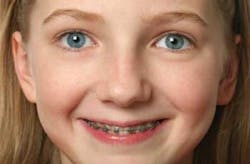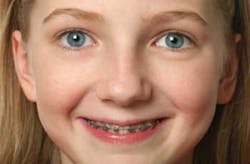Myofunctional Disorders
Dear RDH:
Thank you for giving me the opportunity to share with your readers my life’s passion — the treatment of oral myofunctional disorders and how they affect the entire body’s health. My article in the November 2009 issue of RDH on oral myofunctional therapy received many positive comments from doctors all over the country. The responses I received enabled many patients to finally be referred to the proper professional. Also, many hygienists are now interested in becoming oral myologists.
However, I wrote two statements in the article that created some confusion regarding the scope of practice of an orofacial myologist, and may lead readers to make incorrect assumptions regarding therapeutic procedures.
Therefore, I need the following correct statements to be published at your earliest convenience in the journal.
- Nasal washes are medical procedures that require specific training and are outside the scope of practice of an oral myologist.
- Cosmetic muscle toning (in the absence of an oral muscle disorder) is outside the scope of practice of an oral myologist.
I appreciate any help you can give me to clear up this confusion.
Joy L. Moeller, BS, RDH, COM
Pacific Palisades, California
Dear RDH:
I am writing in reference to the letter from Suzanne Mann, RDH, in the June 2010 issue of RDH. I share her frustration and have felt the same way for many years. I have also been a dental hygienist for 45 years and have been dismayed by the lack of portability of our RDH licenses.
Craig Dickson (left), publisher of RDH magazine, and Gail Stoops, senior manager of professional relations at Philips Sonicare, presented the 2010 Mentor of the Year award to Pam Myers of Huntsville, Texas, during a ceremony at the American Dental Hygienists’ Association’s annual session in Las Vegas in June. Myers’ service as a mentor was detailed in an April 2010 RDH article.
My latest roadblock to licensure was when I moved to Florida last August. I had retired from a practice where I had worked full-time for 32 years and was hoping to work part-time in retirement. Florida requires that I take the complete Florida board exam as well as the national board exam if I want to practice in this state. I had also looked into retirement in North Carolina but they required the same.
Having taken and passed the national board and holding licenses in New York, Maine, Massachusetts and Maryland (I relocated several times in my early years due to my husband’s employment), it seems ludicrous that reciprocity is not forthcoming when work experience and credentials are so plentiful.
Because of the current situation with licensure I am now adjusting to full-time retirement and using my energy in volunteer projects. It is certainly a lifestyle change!
Mary K. Garrepy, RDH
Ocala, Florida

